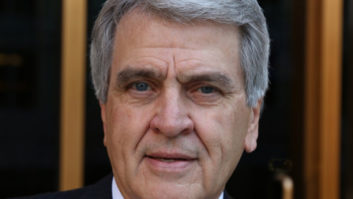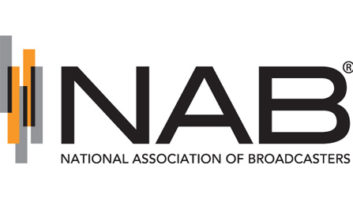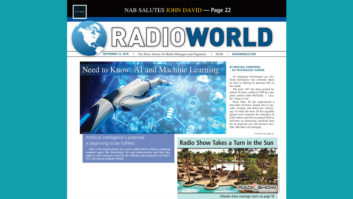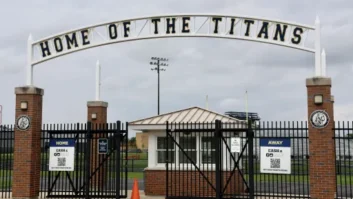John David will receive the National Radio Award from the National Association of Broadcasters at the fall Radio Show.

The award recognizes outstanding leaders in the industry. NAB President/CEO Gordon Smith called David “the consummate radio broadcaster.”
In February David became senior advisor to the association after almost three decades in its service including 20 years as executive vice president of radio. We reached out to learn more about the man behind the public persona.
Radio World: What does the National Radio Award mean to you, especially as someone who oversaw this award program until recently?
John David: I did have the pleasure of notifying most of the recipients of this award and was always looking for candidates to suggest to the Radio Executive Committee.
When you start with Howard Cosell, Gary Owens and Larry King many years ago, you have an interesting turn of events when you morph the award to honor people who have shown leadership and have set higher standards for the business. Innovators, risk takers and people who have volunteered their expertise to forward radio are among those who have preceded my selection. Many of the previous recipients are good friends because of our work together at the NAB.
I’m humbled by my selection. I never had any idea of this surprise.
RW: Tell us about your early days in radio — what are the big things that stand out as different from then and now in the radio industry?
David: My early days started when my voice changed and I got the opportunity to start in the proverbial 1,000 Watt daytimer in my hometown [KLCO in Poteau, Okla.]. Looking back at the equipment I worked with, and the thousands of live commercials I did, and seeing how automated systems are now used even for live and local programming, I’m very impressed with how technology has impacted radio positively.
The direct interaction I experienced with listeners has changed and involves more than simply picking up the phone and taking requests. Now it incorporates social media between the songs. There’s not so much news and information. There’s more music and less talk. I miss the personalities that dominated most of the dayparts.

RW: Before your Washington days, your broadcasting career took off in the Midwest. Do you ever miss being on the air? Do you still have “dead air” dreams?
David: I don’t really miss being on the air, but I still listen between the music more intently than the average listener. Sometimes I wish I could call the on-air people to give them a quick critique. I personally don’t care for personalities laughing all the time on the radio. It sometimes leaves the listener out, and it’s often not that funny in the first place.
I don’t think I ever had “dead air” dreams. At KOMA in Oklahoma City, we had a loud bell that went off when dead air hit. It was embarrassing if you were the jock on air when that happened.
RW: If a radio station asked, would you sign up as an air personality or a news person today, or is being on the air no longer fun?
David: I left the on-air part of my career doing mornings on KOMA in Oklahoma City. I don’t like getting up that early.
I did promotional announcements for a station in Kentucky, and they called to ask if I did them after lunch. Radio announcers will know what that means!
RW: Do you have some favorite memories from your time as executive vice president of J. R. Broadcasting Company or from owning stations in Missouri and Kansas?
David: It was a great experience. Some memories are good, and some not so good.
When we took over, I didn’t realize that many advertising agencies didn’t pay for 90 days.
Some not-so-good memories include a call from the police department saying your morning DJ is spending the night with us and won’t be there tomorrow morning; a crop duster flying between the three-tower directional array; and putting an outhouse in a parade and putting a sign on it that said, “Wherever You Go, Listen to KFSB.”
Good memories include being the best source of local news for radio on a consistent basis that people depended on. And, personally, helping many businesses succeed by promoting their business on the most-listened-to stations.
RW: How did your terms on the NAB Radio Board and as president of the Missouri Broadcasters Association inform your work at NAB?
David: One of the first things I did when my business partner and I bought the stations was join the state association and the NAB. It’s much easier to not do that and avoid the expense and time commitment and let other people take the lead. Way too many broadcasters find too many excuses to sit it out. I invested my time for the Missouri Broadcasters board and learned how to network and work with other broadcasters.
When an NAB board election was coming up, I made the decision to run. I got defeated the first time I ran, but the guy that defeated me by a few votes called me later to encourage me to run to represent Missouri and Kansas. I won this time, and that’s how I got acquainted with the NAB people, including Eddie Fritts, Jim May, Jeff Baumann and John Abel.

When I sold the radio stations in Missouri, they called to see if I would be interested in talking about joining the staff. I’m one of the few people that worked for NAB for many years with NAB Radio Board experience.
RW: You transitioned to senior advisor at NAB in February. In this relatively new role, what are some projects you’re working on now?
David: I get a few calls on “What’s the history of how you did this and why.” I’ve seen some changes that I didn’t want to make previously, and that’s very good. Change is positive, and there are other ways to do things that might be more efficient.
I’m also appearing at radio stations to bring a personal touch from the NAB and reinforcing their investment in the NAB. And surprisingly, there are some people who have not participated in the NAB for several years or never. If I can initiate that discussion, there is no one as familiar with what the mission of the NAB has been and continues to be. When broadcasters see my card that says Washington, D.C., sometimes they think it’s the FCC in to make an inspection!
RW: Here’s a softball. How important is radio’s continuing support of NABPAC and NAB’s lobbying efforts on Capitol Hill?
David: Important! I’ve learned that representatives and senators spend more time than they want to on fundraising. Why not help the people who are receptive to supporting broadcasting issues?
I have had broadcasters tell me that they give to all of their congressional delegation. So, for example, a broadcaster might give to a member of Congress on the Merchant Marine and Fisheries Committee. That’s not necessarily as effective as broadcasters collectively giving to or specifying a Commerce Committee Member or Judiciary Committee member who deals with many of our issues. That’s just one example. The NABPAC knows which members are important to our issues. Designate your contribution, as I do — if you want. That way, you get personal credit and so do all of broadcasting’s interests.

RW: As NAB EVP of radio, you were heavily involved in the sessions at the Radio Show and spring NAB Show for two decades. You also were NAB’s liaison with member radio stations, which kept you in touch with issues local broadcasters are facing. What are some industry trends that you’ve seen play out? Where do you think industry is going next, in terms of regulation and technology?
David: I was around for the 1996 Telecom Act, and that changed the radio ownership landscape. Many companies sold and made some bucks. The national ownership caps were lifted, and local ownership caps increased.
We’ve started evaluating listenership differently in many of the larger markets with PPM.
We’re still explaining to the music business that we provide valuable promotion for the artists they beg us to put on the radio. I’ve been around for that argument for about the fourth time.
We’re streaming our stations in a lot of markets.
We’ve got HD Radio and additional channels after a long process of deciding the standard.
There’s a focus on keeping the radio prominent in the car dashboard. NAB is making a lot of progress by connecting with the auto industry and building on relationships already established by Xperi and HD Radio. I see the auto industry and radio finding a positive relationship in the future that will benefit both.
NAB has established Pilot to encourage new tech that will benefit broadcasting.
And most importantly, NAB is always monitoring both the congressional landscape in D.C. and the FCC regulations with input to both of the processes. No one else represents your interests.
RW: A lot of what you’ve done for the association was visible, such as your planning the radio sessions and your voicing of the Radio Show luncheon and banquet presentations. What were some of the responsibilities and successes at NAB that readers may not know about?
David: I took over the Radio division after working at the NAB for three years in the Government Relations division working with the PAC, state associations and grass roots lobbying.

The first NAB Marconi Awards Show I witnessed, but didn’t produce, after that transition had no food and just beverages, starting at 5 p.m. There were many guest presenters, and they started getting “blue” to try to top the others. That night was the last night for multiple air people. We added food and started at 8 p.m., and the rest is history.
We changed the voting for the Marconis instead of a vote per station to a voting academy. The larger companies were dominating the voting before that change.
Lining up speakers and talent and entertainment for the Vegas NAB Show and the Radio Show was challenging at times. Radio stations have some of the same experiences with concerts and personal appearances. I can tell a few stories.
The NAB Hall of Fame presentations were mostly all positive. Some of the recipients asked me to remind them what the award was about before they went on stage to accept.
And the relationship with the RAB when we partnered for the Radio Show some years ago became a positive experience.
RW: If you had five words of advice for future broadcasters, what would they be?
David: Network. Honesty. Innovate. Adapt. Invest.







